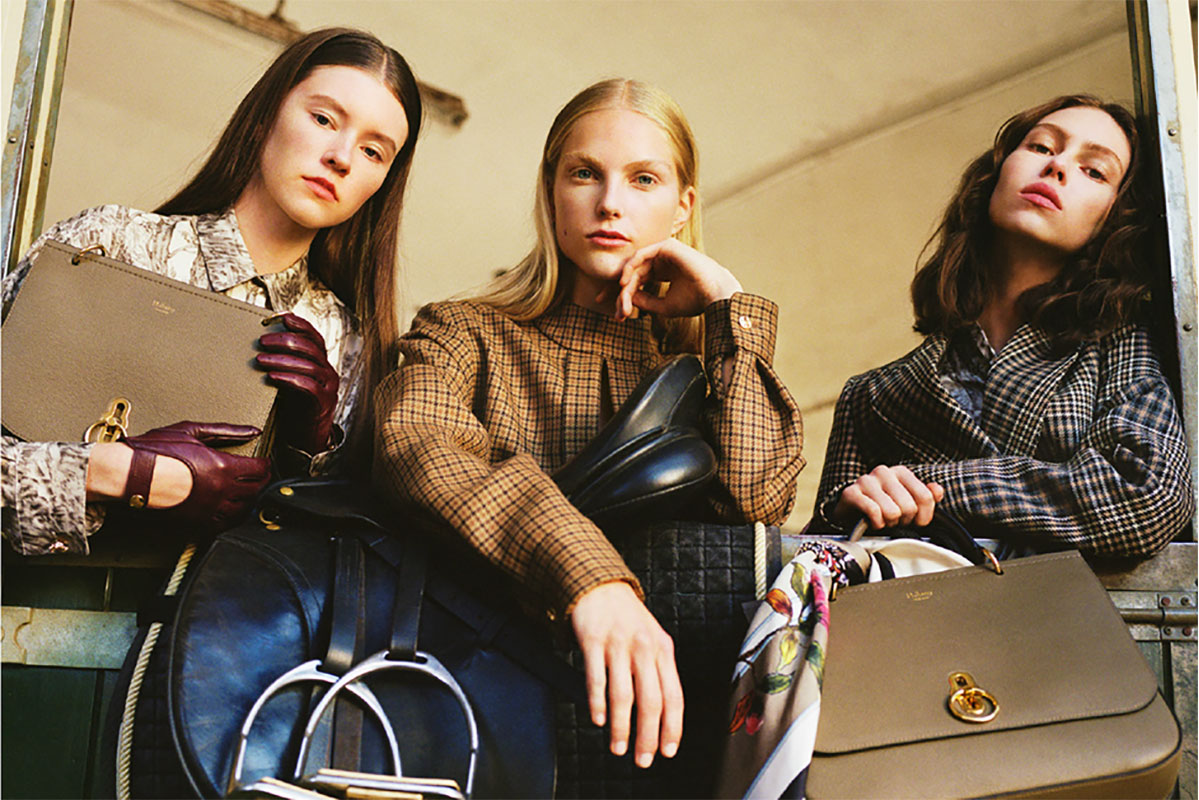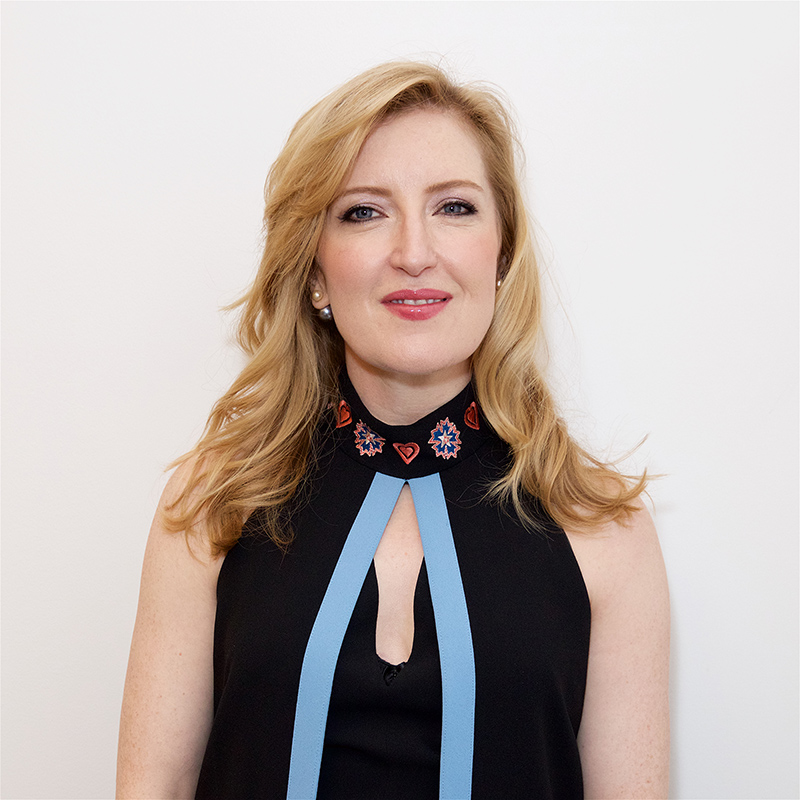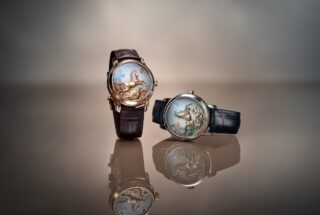This website uses cookies so that we can provide you with the best user experience possible. Cookie information is stored in your browser and performs functions such as recognising you when you return to our website and helping our team to understand which sections of the website you find most interesting and useful.
Walpole CEO Helen Brocklebank on the enduring success of the UK’s luxury industry and why brand Britain is stronger than ever
By Rachel Ingram | 8 March 2019
Helen Brocklebank tells Tempus about the best of British luxury brands, and the trends that will define the future of our economy

London is the fifth biggest city in the world for luxury. According to research by Walpole – the official sector body for more than 200 of the Uk's finest brands – Britain's luxury sector contributed £3.2bn to the UK economy in 2013, with forecasts predicting an increase to between £50bn and £57bn by 2019.
From world-famous brands like Burberry, Bentley and Alexander McQueen, to the rising stars growing in demand worldwide, the industry appears to be unstoppable. But what’s driving Britain’s enduring success in luxury? And how do brands, new and old, stay relevant in the current climate of “digitalisation, millennialisation and Brexitisation”?
Helen Brocklebank, CEO of Walpole, takes a break from working to promote, protect and develop the organisation’s brands to discuss the power of ‘brand Britain’ and the trends that’ll define the future success of the industry…
Breadth of offering
"The British luxury industry is very broad. For pretty much every sector of the business economy, there is a high-end offering. French luxury is very much focused on fashion and beauty, Italian luxury is all about fashion and homes, Germany’s all about cars, but British luxury is everything from unbelievably fabulous fashion like Alexander McQueen, Mulberry and Burberry and cars such as Bentley, Rolls- Royce and McLaren, to extraordinary retail like Harrods and Farfetch, and homewares like Wedgwood. The breadth of the sector is part of its strength and I see that continuing."
The British spirit
"British ambition is all about the relentless quest for perfection – and that’s partly about the creative engine. Brands are always looking to the future but they’re using the story-telling of the past to give them a springboard. When you look at Burberry’s rebrand, that was inspired by an archive picture from 1908 and yet it’s unbelievably modern. It’s about setting a new direction for the brand.
The brands that will succeed are those with innovation and technological development at their core. Even something that feels incredibly old school, like Wedgwood, follows this ethos – Josiah Wedgwood created the first innovation in ceramics for 1,000 years with bone china, and then he had to create a whole new industrial way of doing things in order to get that business of the ground. The behaviour that drives renewal and future growth in the luxury sector has always been there. After all, inventiveness, creativity and an entrepreneurial attitude is a signature of the British character." >>

Export focus
"Luxury is one of the few export categories we have in this country – 78% of what’s produced in the sector is destined for overseas markets (compared to 9% of British output overall). The love for British luxury, of high- end craftsmanship and the inventiveness, design and playfulness of it, is enormous. The appeal of ‘brand Britain’ is huge. Many fear we’ve given ourselves a bit of a knock with Brexit – and obviously, I think we have – but when you talk to people in the key markets – US, China and the Middle East – it doesn’t even come into the conversation. It’s a UK-based industry with a global appeal and I think that makes it immensely exciting."
Digital demand
"Digital helps open a much more interesting and immediate window on the world – that’s why the cash registers started ringing on DeMellier’s e-commerce site, for instance. This was a tiny, little known brand that just started a few years ago when somebody spotted Meghan Markle, now the Duchess of Sussex, wearing one of their bags in the US. Suddenly their US business went from small but important to absolutely mad, and they’re having to re-order supplies of that bag as fast as they can. The Markle effect is great. Examples like this happen all over the world. Digital has helped these kinds of brands maximise their appeal."
THE FUTURE OF LUXURY
"When you’re looking at the next steps of where British luxury is going, it’s impossible to detangle that from the important drivers for luxury in general. The key trends are what I call the ‘four P’s of luxury’.
Place: Where something comes from is hugely important. Each nationality has its own flavour, so the ‘Britishness’ of UK luxury is a key factor but more important is where it’s actually made. So the fact that Mulberry products are made in Somerset is vital to its story.
Playfulness: This is becoming increasingly important, particularly to the millennial customer. There is a maverick sensibility of British luxury that fits well within the ‘millennialisation’ of luxury. It doesn’t take itself too seriously, it’s not pompous. There is a spirit that’s got a lot of appeal, particularly in export markets.
Participation: A sense that you can participate in the brand. Being really austere is quite hard these days. The distance and exclusivity that luxury brands used to have is now not such a great appeal – customers want to get beneath the bonnet. It’s a difficult balance, because exclusivity is important and that’s not going away, but it shouldn’t exclude people. This new outlook is driven by social media and how you talk to your customer – you can’t speak at them, it’s not a play, it’s a ‘devised drama’.
Purpose: A brand has to mean something. We don’t talk about sustainability as much as we talk about ‘brand purpose’ and what we call ‘luxury with a heart’. It’s a hygiene factor that you’re sourcing things responsibly and not creating waste – if you go into Claridge’s or The Connaught to get a drink, you’ll never see a plastic straw. It’s also about how luxury brands behave and how they’re contributing to the world to make it a happier place. Glenmorangie [winner of the 2017 Walpole Luxury with a Heart award] is a great example of that. They had a problem where the water in the loch from which they source water for whisky was quite polluted, but instead of building a high-tech cleaning plant, they thought about how oysters are a natural decontaminant in water and re-introduced oyster beds into the loch.
As a result, they not only got clean water for the whisky, they created a secondary industry with additional employment opportunities, which made a substantial difference to the local community. These things are really important to the new luxury consumer. If you look at how any luxury brand behaves, you’ll see those four things, and if you’re not doing them all at the same time, or if you’re privileging one over the other, you’re not going to connect with the new customer.
Another key focus of British luxury is the commitment that established brands have to making sure that there are new, exciting brands coming through. In this industry, it’s not just about the historic brands, it’s about newness."







